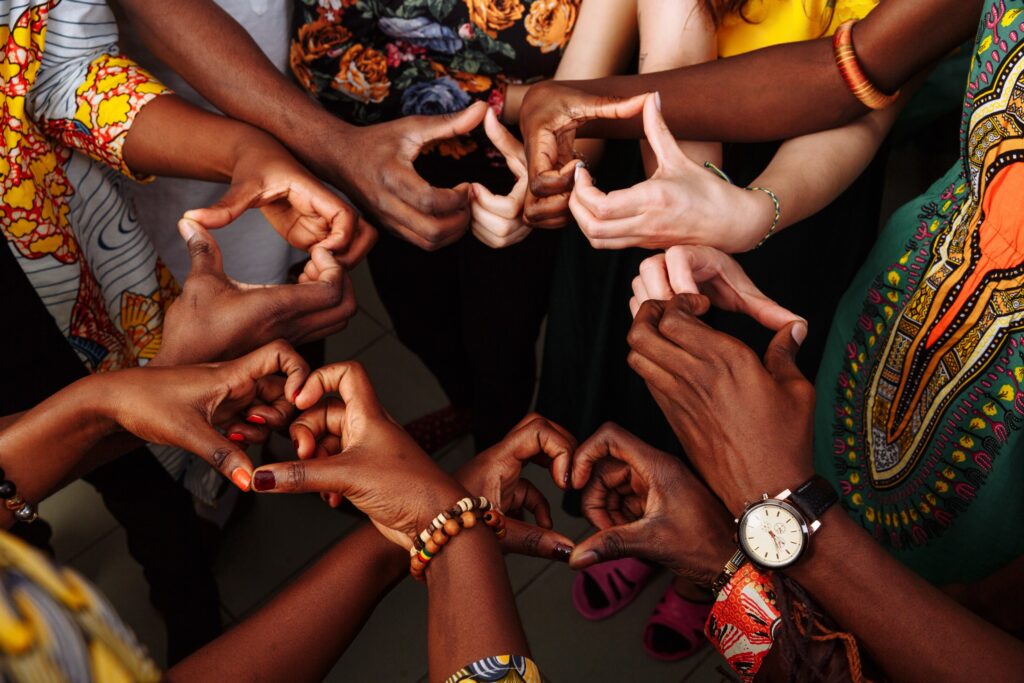Emphasizing our interconnectednessThe Philosophy of Utu
What is Utu?
The philosophy of Utu is deeply rooted in the African concept of humanity, which emphasizes the interconnectedness of individuals within their communities and the broader world. Derived from the Kiswahili word for “humanity,” Utu expresses the idea that to be fully human, one must recognize and embody values of mutual respect, empathy, justice, and the dignity of others.
The late Professor Mĩcere Gĩthae Mũgo, a towering scholar of Pan-Africanism and Africana philosophy, championed Utu as a foundational principle in African ethical thought, linking it to the pursuit of human and people’s rights, cultural integrity, and the collective well-being of societies.
A philosophy of interconnected humanity
At its core, Utu embodies the recognition that one’s identity and fulfillment as a person are contingent on the relationships and community bonds that one nurtures. In African society, the individual is not an isolated entity but rather part of a network of relationships that define who they are. Utu emphasizes the inherent dignity of all people, advocating for a moral responsibility to ensure the welfare and rights of others.
Relationships
Identity
Fulfillment
"Utu/Ubuntu-centered knowledge would never seek to either silence or conquer the learner, for one of its objectives is to explode what I call “negative silences” in life. It seeks to “unsilence” the silenced and to liberate them from anything that would inhibit their total human growth. "
Utu is based on traditional African values
In traditional African communities, the concept of Utu is reflected in communal efforts to raise children, solve conflicts, and support families in times of hardship.
When a family faces the death of a loved one, the community collectively grieves and supports them emotionally and materially, showing that the pain of one is the pain of all. Similarly, when one person achieves success, it is celebrated by the entire community as a reflection of collective achievement. Utu insists that no person’s life is insignificant or disconnected from the lives of others.
Utu vs. Ubuntu:
Similarities & differences
Utu and its more widely known sister philosophy, Ubuntu, share a common essence but emphasize different aspects of African thought. Both are philosophies of humanism and emphasize the importance of community, dignity, and mutual care.
Ubuntu
Ubuntu, often summarized by the expression “I am because we are,” underscores the collective existence and interdependence of individuals. Ubuntu celebrates the notion that the community’s well-being and success are directly linked to the individual’s well-being and vice versa.
Ubuntu is more commonly associated with southern African cultures, particularly in South Africa, and is more widely recognized globally due to figures like Nelson Mandela and Desmond Tutu.
Utu
Utu is primarily rooted in East African contexts, especially among Swahili or Bantu-speaking communities.
Utu goes beyond the communal aspect to more explicitly emphasize ethical integrity and moral justice. While Ubuntu focuses on the “we” in society, Utu often demands personal accountability and highlights the moral responsibilities that individuals hold within their communities. Utu insists that true humanity can only be realized when one’s actions are just, compassionate, and honor the intrinsic dignity of others.
Professor Mũgo used Utu to highlight the need for African reclamation
Professor Mũgo’s advocacy of Utu was not just about fostering connections between people; it was about actively challenging injustice and promoting human/people’s rights.
For her, Utu meant fighting oppression, ensuring the equitable distribution of resources, and guaranteeing human/people’s rights for all, especially those marginalized by colonial legacies. She advocated for a form of Utu that is not only relational but radically transformative, pushing society towards justice and systemic change.
“Utu… urges us to move beyond ourselves and to transcend our comfort zones because other people, their experience, and sites of knowledge are a part of who we are; just as we are a part of who they are.”
Heed the call to direct action
When addressing issues such as poverty, oppression, or environmental degradation, Utu does not allow one to remain a passive bystander. It calls for direct action to uplift others, confront injustice, and ensure that the rights of all are respected.
Inspire movements for the well-being of society
In contemporary settings, Utu might inspire movements for social justice or advocacy for the marginalized. A practical example could be seen in community-driven efforts to build schools or health clinics in underserved areas.
Create personal accountability
Utu demands personal accountability and active participation in creating a just and ethical world. Engage in the betterment of communities, uphold the dignity of others, and strive for a society rooted in justice and mutual respect.
Utu shows the way to transforming humanity
In many ways, Utu is a philosophy of active engagement in shaping a just society. It challenges individuals not only to be in relationship with others but to take ethical stands that foster equity and justice.
In essence, Utu is a philosophy of relational justice. It upholds the view that to be truly human, one must act with compassion, integrity, and a deep commitment to the well-being of others.

Each of our identities is built from the foundation of relationships we find in our community
All people and individuals deserve inherent dignity, with our advocacy as a guiding beacon
Our success as a society should be championed and celebrated by all as a reflection of collective achievement
Become the spark
that ignites transformation
Your impact can help set change in motion.